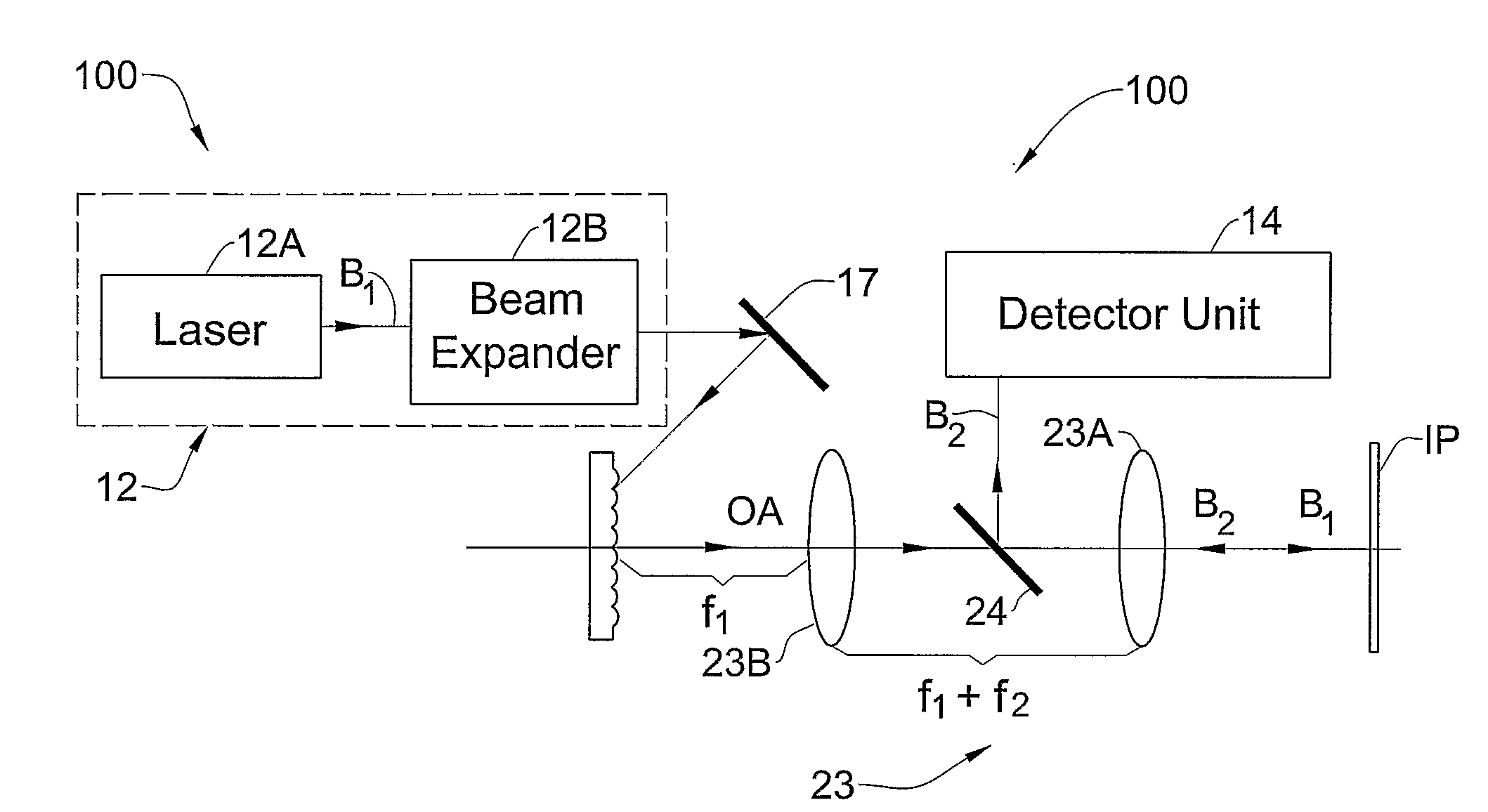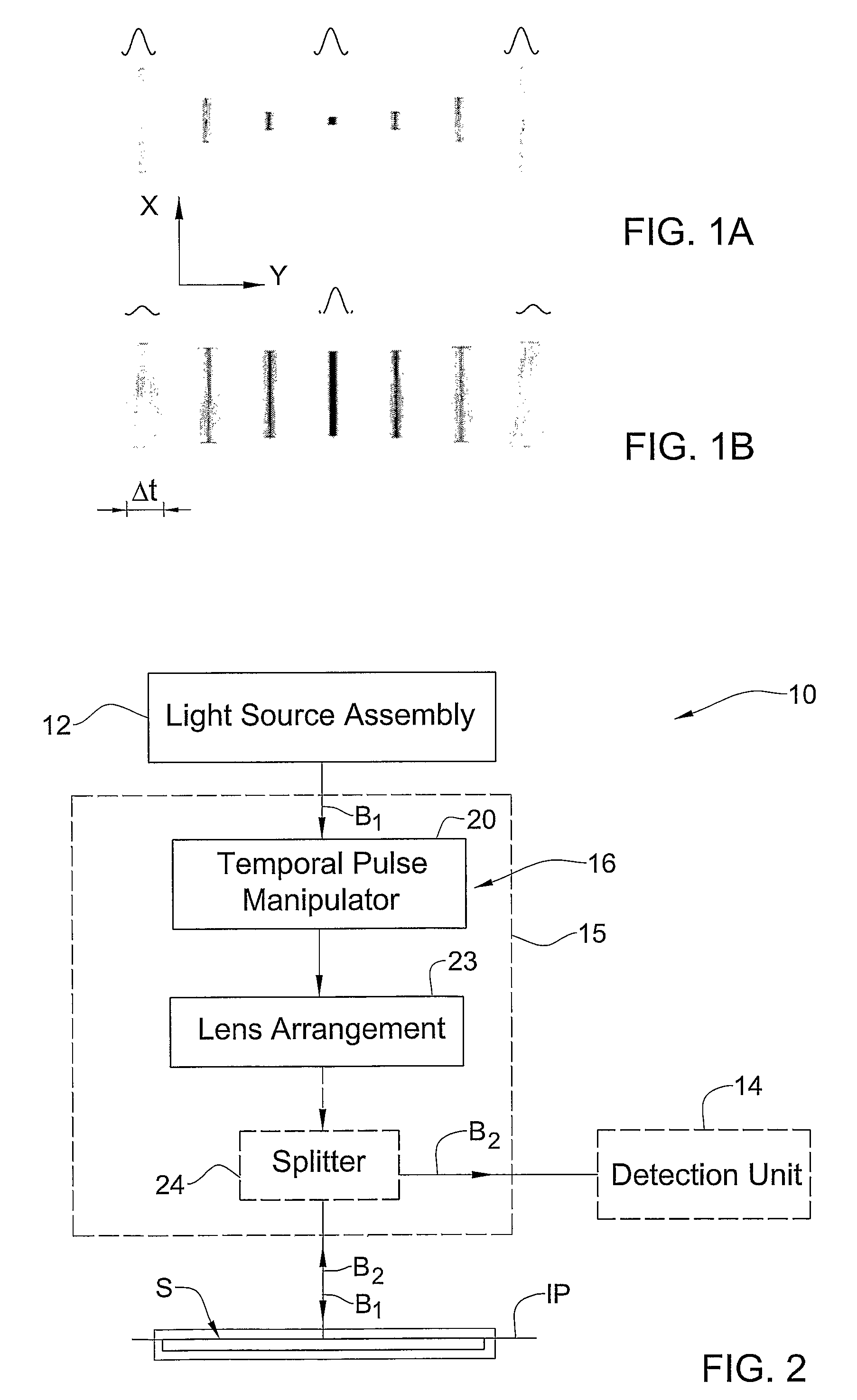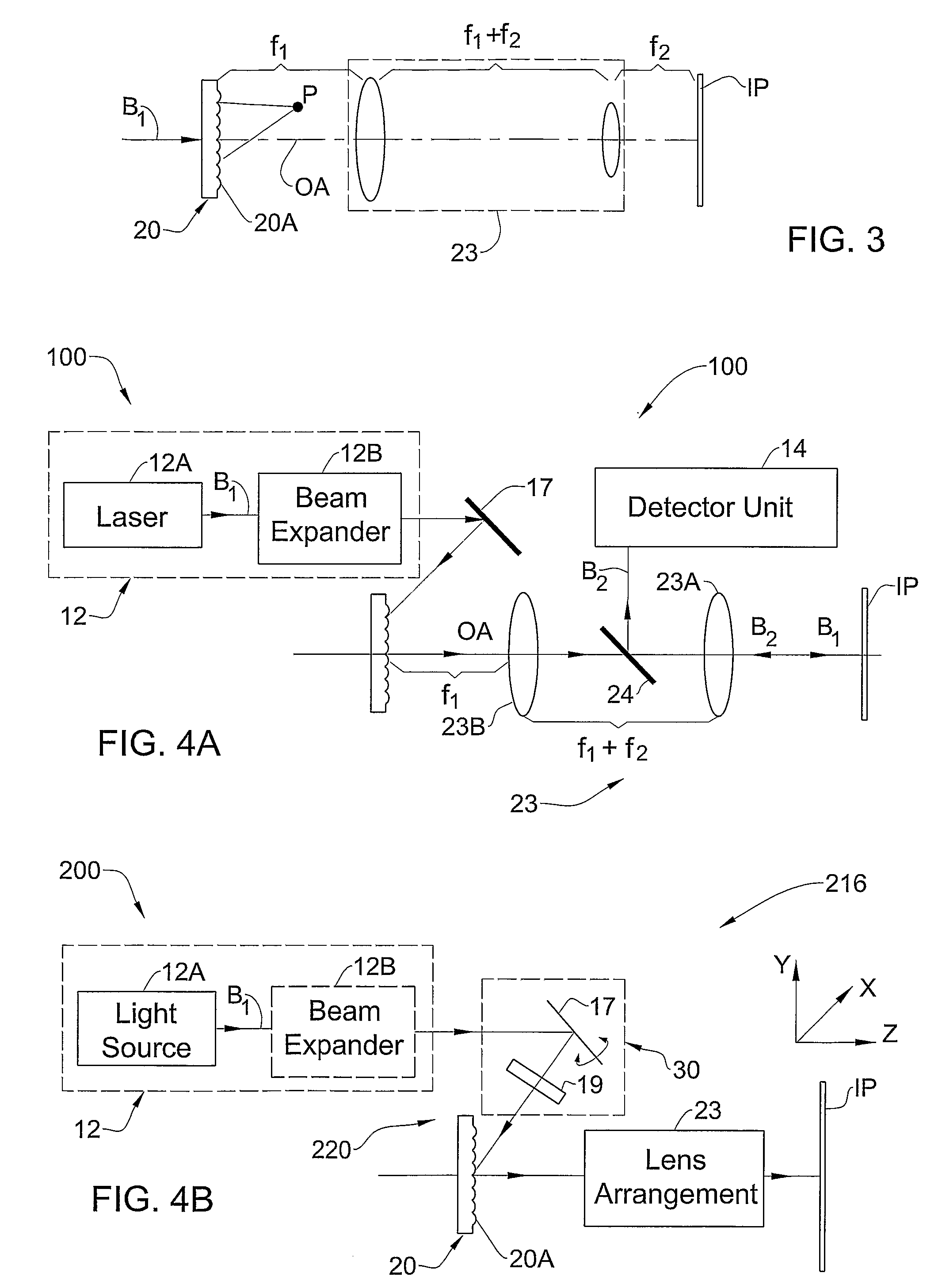Microscope system and method
a microscopy and system technology, applied in the field of optical techniques, can solve the problems of significant limitation of the utility of fast time-resolved imaging, limited image frame rate, and time-consuming process of imaging, and achieve the effect of facilitating multi-photon microscopy imaging of a sampl
- Summary
- Abstract
- Description
- Claims
- Application Information
AI Technical Summary
Benefits of technology
Problems solved by technology
Method used
Image
Examples
Embodiment Construction
[0047]The present invention provides for depth-resolved imaging, e.g. multiphoton microscopy (e.g., TPEF microscope), or material processing (e.g. patterning), performed without a need for scanning the radiation beam along a sample (i.e. without a need for a relative displacement between an exciting light beam and a sample along a focal plane). In other words, the present invention provides for imaging / processing a sample with a scanningless optical system (e.g. microscope). To this end, the technique of the present invention utilizes temporal focusing of a single input light pulse (rather than spatial focusing), and possibly also utilizes a spatial focusing along one spatial axis.
[0048]Referring to FIGS. 1A and 1B there are schematically illustrated the principles of such a scanningless depth resolved microscopy as compared to the standard multiphoton microscopy scheme. Here, the X-axis is the lateral axis extending along the sample (i.e. axis perpendicular to the optical axis of a...
PUM
 Login to View More
Login to View More Abstract
Description
Claims
Application Information
 Login to View More
Login to View More - R&D
- Intellectual Property
- Life Sciences
- Materials
- Tech Scout
- Unparalleled Data Quality
- Higher Quality Content
- 60% Fewer Hallucinations
Browse by: Latest US Patents, China's latest patents, Technical Efficacy Thesaurus, Application Domain, Technology Topic, Popular Technical Reports.
© 2025 PatSnap. All rights reserved.Legal|Privacy policy|Modern Slavery Act Transparency Statement|Sitemap|About US| Contact US: help@patsnap.com



